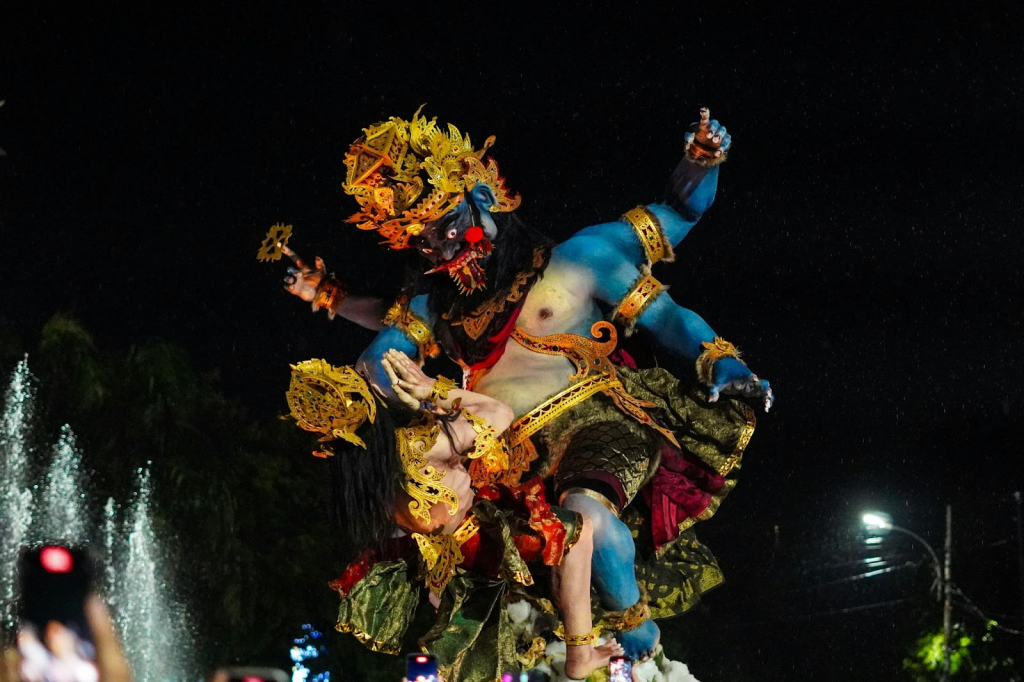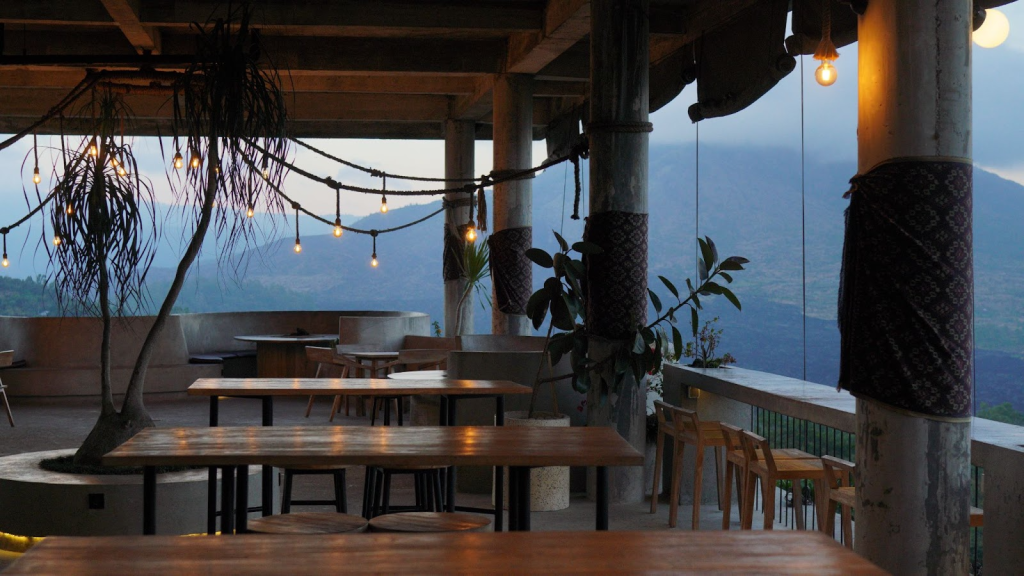The island of Bali, renowned for its vibrant culture and spiritual traditions, observes a unique and profound holiday: Nyepi, the Balinese Day of Silence. In 2026, this significant event offers a rare opportunity for visitors to experience Bali in an entirely different light, a stark contrast to its usual bustling energy. Nyepi is not merely a public holiday; it’s a sacred day of introspection, self-reflection, and spiritual cleansing for the Balinese Hindu community. Understanding its principles and observing its traditions is key to appreciating this deeply meaningful cultural phenomenon.
This article serves as a comprehensive guide for those wishing to understand and respectfully experience Nyepi in 2026. From the preparations leading up to the day to the essence of the silence itself and its impact on travel, we will delve into the heart of this extraordinary Balinese observance. Prepare to discover a side of Bali that quiets the world to listen to its inner self.
Understanding the Essence of Nyepi
This section will introduce the core concepts and historical context of Nyepi, setting the stage for understanding its significance.
What is Nyepi?
Nyepi marks the Balinese New Year according to the Saka calendar. It is a day unlike any other, dedicated to silence, fasting, and deep meditation. The date of Nyepi aligns with the new moon, a celestial event seen as potent for spiritual renewal. This special day aims to purify the individual and the entire universe from negative influences.
Balinese Hindu cosmology sees the world as needing balance. Nyepi helps reset this balance by creating a complete cessation of normal life. This purification makes the island appear empty, fooling evil spirits into thinking Bali is deserted, thus driving them away for the year ahead. It is a profound spiritual cleansing for everyone.
The Four Pillars of Nyepi Observance
On Nyepi, the Balinese people strictly follow four main rules, known as Catur Brata Penyepian. These pillars shape the unique experience of the Day of Silence. Observing these rules helps promote inner peace and universal harmony.
- Amati Geni (No Fire/Light): This rule means no fires are lit, and all electricity use is kept to an absolute minimum. The entire island goes dark at night, creating an incredible blanket of stars. This symbolic dimming helps people focus inward, moving away from external distractions.
- Amati Karya (No Work): All forms of labor and daily activities stop for the day. This includes all businesses, shops, and even typical household chores. The goal is to fully rest and step away from the demands of everyday life. This allows for deep self-reflection.
- Amati Lelanguan (No Entertainment/Pleasure): On Nyepi, people avoid all forms of enjoyment and entertainment. This includes music, television, and any activities that bring pleasure. The focus remains on serious introspection and quiet contemplation. People spend this time in quiet thought.
- Amati Lelunganan (No Travel): Movement is strictly forbidden outside one’s home or hotel premises. Roads are empty, and even the airport shuts down for 24 hours. Pecalang, traditional Balinese security guards, patrol the streets to ensure this rule is followed. This restriction helps maintain the island’s profound silence.
Nyepi Eve: Ogoh-Ogoh Parades and Spiritual Cleansing
This section focuses on the vibrant celebrations and preparations that occur the day before Nyepi.
The Spectacle of Ogoh-Ogoh
The night before Nyepi, Bali comes alive with the electrifying Ogoh-Ogoh parades. Communities create giant, often scary, effigies that represent Bhuta Kala, malevolent spirits and negative forces. These impressive figures are paraded through the streets with loud music and joyful shouts, making for an unforgettable sight.
The symbolism of these Ogoh-Ogoh figures is powerful. At the end of the night, most of these effigies are burned in large bonfires. This burning is a symbolic act, meant to purify the environment and ward off any evil spirits from the island. It marks a dramatic end to the old year’s negativity.
These parades are truly community-driven events. Local villages, called Banjar, spend weeks building their unique Ogoh-Ogoh figures, often competing for the most creative design. It brings everyone together, from children to elders, in a shared cultural expression. The energy is contagious and exciting.
Melasti Ceremony: Purification by Water
Typically, a few days before Nyepi, the beautiful Melasti ceremony takes place. This is a ritual purification where sacred temple objects are carried in colorful processions to the nearest ocean or natural spring. People dress in traditional white clothing, creating a stunning visual.
The ocean holds immense spiritual importance in Balinese Hindu beliefs. Cleansing sacred objects and oneself in these waters symbolizes washing away sins and impurities. It is believed that the ocean’s power can purify the mind, body, and soul. This ritual is deeply revered by the Balinese.
Melasti serves as a vital precursor to Nyepi. It sets a pure and sacred tone for the upcoming Day of Silence. By cleansing themselves and their sacred items, the community prepares spiritually for the profound introspection that Nyepi demands. It is a clear reminder of their deep faith.

Experiencing Nyepi: What to Expect on the Day of Silence
This section will guide visitors on how to navigate and respectfully participate in the Nyepi experience.
Bali Grinds to a Halt
On the Day of Silence, Bali literally comes to a complete standstill. All public services, including transportation, shops, and restaurants, cease operations for 24 hours. The quietness is immediate and striking, a stark change from the island’s usual hustle. Everyone must remain indoors.
Bali Ngurah Rai International Airport (DPS) closes entirely during Nyepi, without a single flight taking off or landing for the entire 24-hour period. If you have flight plans, be sure they do not fall on this day. No ferries or fast boats will operate either, so no inter-island travel is possible.
Visitors are strongly advised to remain within their accommodations during Nyepi. Avoid any activities that would disrupt the profound silence, such as loud music or venturing outside. Respecting these rules shows appreciation for Balinese culture. It also keeps you safe, as traditional guards will ask you to return inside.
Embracing the Silence and Introspection
Nyepi offers a unique opportunity for quiet reflection. Instead of seeing it as a day of restriction, embrace the chance to disconnect from the busy world. Many visitors find the peaceful atmosphere deeply refreshing and calming. It’s a true digital detox.
For visitors, practical activities can include reading that book you’ve been meaning to start, writing in a journal, or practicing meditation. You can simply enjoy the serene atmosphere from your accommodation, perhaps stargazing at night without any light pollution. The sounds of nature become very clear.
Local etiquette demands strict silence and stillness. Even inside your hotel, keep noise to a minimum. Avoid unnecessary loud talking or music, especially if your room faces public areas. Your respect for the Balinese Day of Silence will be greatly appreciated. The island breathes as one.
Accommodations and Nyepi
Travelers should plan their accommodation carefully for Nyepi. Many hotels offer special Nyepi packages, which include meals and in-house activities. It is wise to book your stay well in advance, as hotels fill up quickly during this unique period. Rooms with balconies can offer great views of the quiet streets.
Most hotels provide food and beverage services for guests during the Day of Silence. They also manage lighting and security to comply with Nyepi rules. Expect a more limited menu, possibly buffet style, as staff numbers are also reduced. All staff will stay on property for the 24 hours.
Some hotels even arrange quiet activities like yoga classes or movie screenings within their premises, ensuring they adhere to the spirit of silence. Confirm what services will be available when you book your stay. This ensures a smooth and comfortable experience during Nyepi.
The Day After: Ngembak Geni and Re-emergence
This section will cover the transition back to normalcy after the Day of Silence.
Ngembak Geni: The Day of Forgiveness
The day immediately following Nyepi is known as Ngembak Geni, which means “lighting the fire.” This marks the welcome re-emergence into normal activity and social life. The quiet spell is over, and the island slowly awakens. It’s a time for community bonding.
On Ngembak Geni, it’s customary for Balinese people to visit family and friends. This time is used to exchange apologies for past wrongdoings and foster good relationships for the new year. It is a very important day for renewing social bonds. This helps ensure harmony among people.
You will see communities gathering, temples holding ceremonies, and a general buzz returning to the air. People are happy to reconnect after a day of solitude. The atmosphere shifts from deep quiet to gentle, joyful re-engagement. It’s truly a beautiful transition to witness.
Resumption of Services and Travel
Normal operations slowly resume across Bali on Ngembak Geni. The island starts buzzing again as businesses prepare to open. Life returns to its usual pace, though perhaps with a newfound calm.
Bali Ngurah Rai International Airport reopens its gates on the morning after Nyepi, typically around 6 AM. Flights begin to take off and land again. All forms of transportation, including taxis and ride-sharing services, become available once more. You can easily get around.
Shops, restaurants, and other services will gradually begin operating as usual. Some smaller businesses may take a little longer to open, but generally, by midday, Bali feels fully awake. You can then continue your Bali adventure with renewed energy.
Planning Your Trip for Nyepi 2026
This section provides actionable advice for travelers planning to be in Bali during Nyepi.
When is Nyepi 2026?
For those planning to experience this incredible event, Nyepi in 2026 falls on Sunday, March 29, 2026. The Day of Silence starts at 6 AM on March 29th and lasts until 6 AM on March 30th. Knowing this date helps you plan your trip well.
The preceding days also hold important ceremonies like Melasti and the Ogoh-Ogoh parades. These vibrant events are just as much a part of the Nyepi experience. Arriving a few days before March 29th will allow you to witness these special preparations. It’s all part of the tradition.
Booking in Advance: A Crucial Step
Booking flights and accommodation months in advance is incredibly important if you plan to be in Bali for Nyepi. Demand for rooms, especially in hotels offering Nyepi packages, is very high. Early booking ensures you get your preferred spot.
When booking your flights, make sure to consider the 24-hour airport closure. Arrive at least a day before Nyepi, or plan to depart a day after Ngembak Geni. You cannot arrive or leave Bali by air on March 29, 2026. Adjusting your travel dates carefully will prevent any issues.
Respectful Engagement and Cultural Sensitivity
Being respectful is key to having a positive Nyepi experience. Understanding that this is a deeply sacred time for the Balinese Hindu community helps visitors behave appropriately. Your quietness shows respect.
Learning a few basic Balinese greetings, like “Om Swastiastu” (hello) or “Suksma” (thank you), can go a long way. Small efforts to connect with the local culture are always appreciated. This shows genuine interest in their way of life.
Consider supporting local businesses when they reopen after Nyepi. Choosing local restaurants or buying crafts from small shops helps the community. Your visit contributes to their well-being. This creates a positive impact beyond just your own experience.
Conclusion
Nyepi 2026 offers an unparalleled opportunity to witness Bali’s deep spiritual heritage and experience a profound sense of peace and introspection. By understanding and respecting the traditions of this sacred day, visitors can gain a unique insight into the Balinese way of life. The stillness of Nyepi is not an absence of activity, but rather a presence of deep spiritual engagement, a time for the island and its people to reset and reaffirm their connection to the divine. Plan wisely, embrace the silence, and prepare for a truly unforgettable journey into the heart of Balinese culture.





